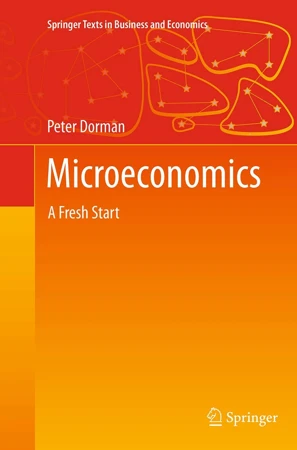✕
Microeconomics. A fresh start

Level:
beginner
Blurb
This book represents a new foundation for the study of microeconomics, viewed from a broad perspective that takes into account new developments at the intersections with psychology, political science, the natural sciences and philosophy. The world has changed dramatically in recent years and so has the field of economics, but many introductory economics textbooks have remained stuck in the past. This book provides a new beginning for the study of microeconomics, emphasizing current debates and research trends. It is international in outlook and reflects the shift toward empirical methods, as well as the study of institutions and economic behavior. It is also written to fit in with an approach to teaching based on active learning and critical thinking. Mainstream material is still covered, but within a new context, making it more relevant, realistic and responsive to the deeper questions economists are now asking about theory and policy. Economics as a discipline is viewed from a broad perspective that takes into account new developments at the intersections with psychology, political science, the natural sciences and philosophy. Economics as presented in this text is less sure that it has all the answers, but it is more interesting, application-oriented and open to new ideas.This material has been suggested and edited by:
We use cookies on our website. Click on Accept to help us to make Exploring Economics constantly better!

